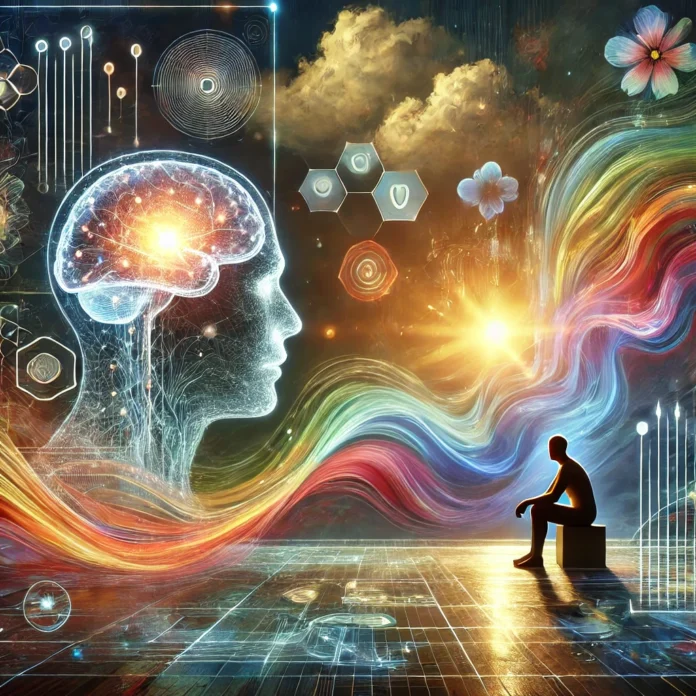Mental health disorders like depression and anxiety are among the most prevalent global health challenges, yet they often go undiagnosed or untreated due to stigma, lack of access to care, or limited resources. Artificial Intelligence (AI) is emerging as a powerful tool in mental health care, offering the potential to detect early signs of mental health issues, monitor emotional well-being, and improve access to support. However, the use of algorithms in such a sensitive field raises both exciting possibilities and critical concerns.
How AI Detects Depression and Anxiety
AI leverages machine learning and natural language processing (NLP) to analyze various data sources that may reveal signs of mental health issues.
1. Speech and Text Analysis
AI systems analyze patterns in speech or written communication, detecting linguistic markers associated with depression or anxiety, such as negative word choices, slower speech rates, or erratic punctuation.
For instance, apps like Woebot and Wysa engage users in conversations, identifying emotional distress through tone, word usage, and interaction patterns.
2. Social Media Behavior
Social media platforms offer insights into emotional well-being. AI algorithms analyze users’ posts, comments, and engagement patterns to detect signs of mental health struggles. Studies have shown that frequent use of certain words or a decline in activity can correlate with depressive episodes.
3. Physiological Data
Wearable devices like Fitbit and Apple Watch collect biometric data, such as heart rate, sleep patterns, and activity levels. AI analyzes these metrics to identify stress indicators or irregular behaviors linked to anxiety and depression.
Applications of AI in Mental Health Care
1. Early Detection
AI systems excel in detecting subtle changes in behavior and communication that may precede a mental health crisis. Early detection allows individuals to seek help before symptoms escalate, potentially preventing severe episodes.
2. Personalized Interventions
AI-powered mental health apps provide tailored coping strategies and therapeutic exercises based on individual needs. For example, Youper uses AI to guide users through Cognitive Behavioral Therapy (CBT) exercises, offering real-time support.
3. Expanding Access
In areas with limited access to mental health professionals, AI can bridge the gap. Virtual assistants and chatbots offer immediate, cost-effective support, making mental health resources more widely available.
Challenges and Limitations
1. Accuracy and Bias
AI systems rely on training data that may not be inclusive, leading to inaccurate assessments for diverse populations. For example, cultural differences in expressing emotions could result in misdiagnoses.
2. Privacy Concerns
The sensitive nature of mental health data raises significant privacy issues. Users must trust that their information is securely stored and not misused.
3. Lack of Human Empathy
While AI can detect patterns and provide guidance, it cannot replicate the empathy and nuanced understanding of a human therapist. Over-reliance on AI might lead to a lack of meaningful human connections in mental health care.
Ethical Considerations
Using AI in mental health care requires robust ethical frameworks to ensure responsible use. Transparency in how algorithms work, informed consent from users, and strict data protection protocols are essential to build trust and safeguard users’ well-being.
Conclusion
AI holds great promise in transforming mental health care by enhancing early detection, personalizing interventions, and increasing accessibility. While it cannot replace human therapists, it can complement traditional approaches, providing critical support to those in need. As technology evolves, striking a balance between innovation and empathy will be crucial in ensuring AI serves as a positive force in mental health.





